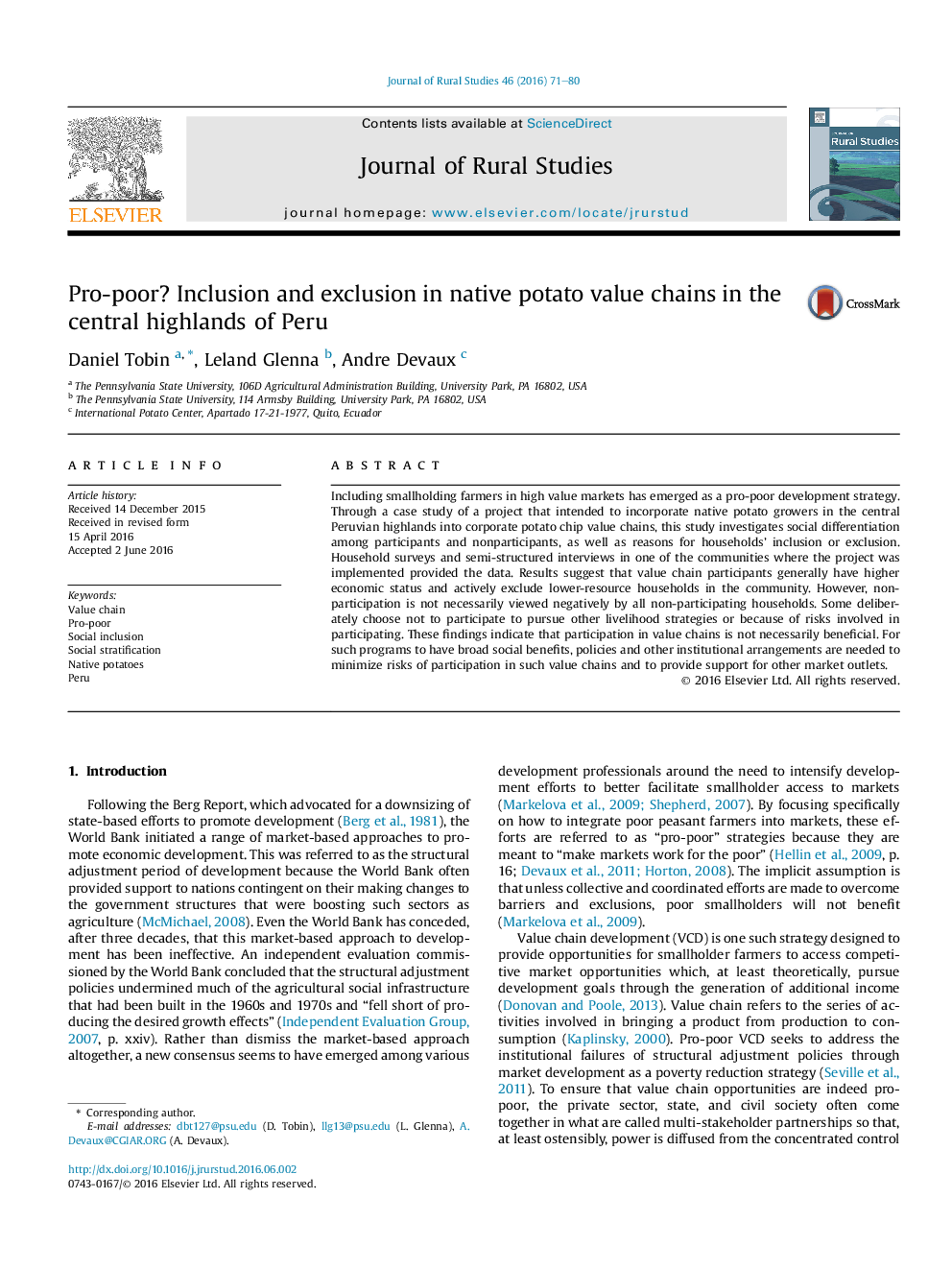| Article ID | Journal | Published Year | Pages | File Type |
|---|---|---|---|---|
| 6545383 | Journal of Rural Studies | 2016 | 10 Pages |
Abstract
Including smallholding farmers in high value markets has emerged as a pro-poor development strategy. Through a case study of a project that intended to incorporate native potato growers in the central Peruvian highlands into corporate potato chip value chains, this study investigates social differentiation among participants and nonparticipants, as well as reasons for households' inclusion or exclusion. Household surveys and semi-structured interviews in one of the communities where the project was implemented provided the data. Results suggest that value chain participants generally have higher economic status and actively exclude lower-resource households in the community. However, non-participation is not necessarily viewed negatively by all non-participating households. Some deliberately choose not to participate to pursue other livelihood strategies or because of risks involved in participating. These findings indicate that participation in value chains is not necessarily beneficial. For such programs to have broad social benefits, policies and other institutional arrangements are needed to minimize risks of participation in such value chains and to provide support for other market outlets.
Related Topics
Life Sciences
Agricultural and Biological Sciences
Forestry
Authors
Daniel Tobin, Leland Glenna, Andre Devaux,
